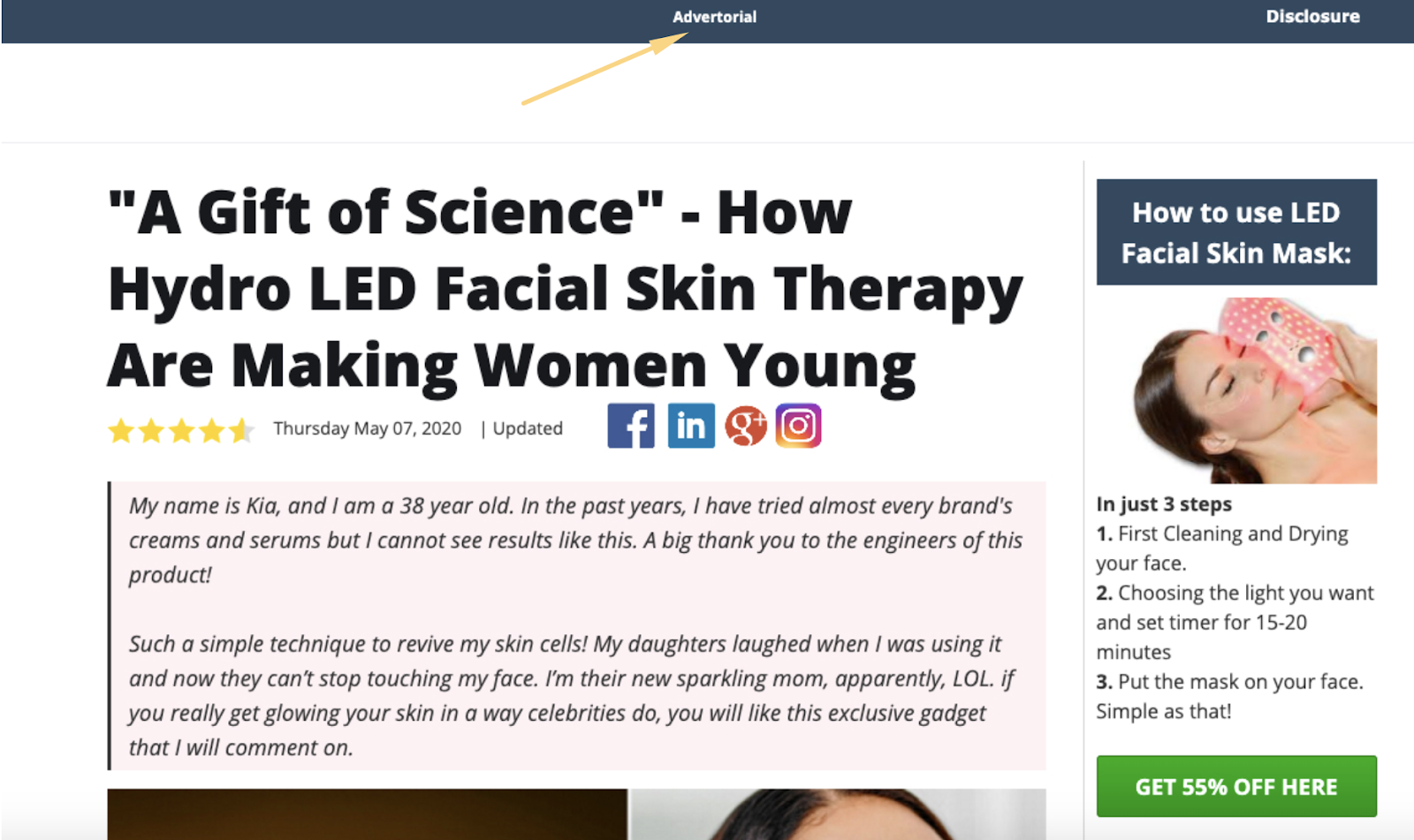When setting up landing pages, choosing particular copywriting techniques and design elements to boost conversions, advertisers have to bear in mind MGID content policies if they want to get their campaigns to pass moderation quickly.
In essence, MGID policies aim to make sure that end-users receive all the information needed to make the final decision and their personal data are not misused. Referring to the landing page setup, things that get commonly overlooked include terms and privacy policy, contact and disclosure information.
In this article, we have prepared a checklist of must-have elements of compliant landing pages, our own recommendations, and some examples of compliant page making.
Advertorial or advertisement announcement
All applicable pages should be marked with the “Advertisement” or “Advertorial” announcement. These labels have to maintain a clear formatting and be easily recognizable by users.

Disclosure
Your pages should have a clear business objective and disclose what you are doing for customers. As a rule of thumb, you would want to put the disclosure in the header, so that it can be spotted by a reader.

Terms of service and privacy policy
On your landing pages, you have to provide users with the transparent terms of service and details on how you handle their personal data. Make sure that the privacy policy on your landing page covers the use of cookies and retargeting.
Typically, you would locate the terms of service and privacy policy in the footer, so they don’t draw a lot of attention but can be easily found.

Website structure and navigation
Navigation menus have to be clear and placed right where users expect to see them. Depending on the page setup, they can be added in the header, footer or in the sidebars.
Needless to say that all web forms and buttons have to work properly and redirect to the proper places on the website. Fake CTA or social media buttons, redirects after clicking on a back button, and other deceptive techniques are strictly prohibited by our policies. In addition to this, we highly recommend you to turn off popups and avoid using comebackers ‘Are you leaving?’ that appear after closing the webpage.
Authentic and realistic content
Ultimately, you would want to cultivate users’ trust and desire for your product. Therefore, try to avoid stating non-existent or non-verifiable product properties, and instead put the benefits of valid characteristics to the front. For example, provide customers with a full list of natural ingredients and their effects.
Illegal endorsement is another common reason for campaign rejection by our moderators. Try to avoid endorsing food supplements by doctors, pharmacists, or dietitians with no legal authorization. Instead, we recommend to use more true-to-life storytelling concepts and share real experiences.
Avoid misleading statements
At MGID, we do not tolerate any bold unrealistic claims or trigger expressions that may mislead users, such as “clinically tested” or “clinical tests show that". Instead, we recommend you to opt for softer attention-grabbing techniques and headlines. For example, you can ask users questions focused on their issues, like ‘Do you suffer from any of these types of pain?’
Final thought
In conclusion, you would want to provide reliable and transparent information on your landing page, engage your target audience, and streamline their progress through the customer stages.
To ensure clear messaging and proper use of personal data, a landing page has to have all of the above-mentioned elements, such as a disclosure, terms and privacy policy, functional navigation buttons etc. If you have any additional questions in this regard, do not hesitate to consult with our moderation team.





